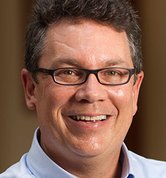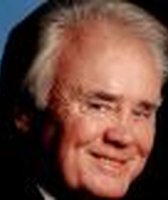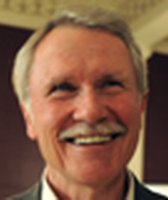Get PolitiFact in your inbox.
SUMMARY: Rep. Ron Paul has the most libertarian voting record in the presidential field, but some of his claims about his record are a stretch. He can fairly say he opposes gun control, but his unequivocal claim that he only votes for programs authorized in the Constitution is contradicted by several votes.
Paul, a Texas Republican, has been dubbed "Dr. No" because he's often the lone dissenting vote on popular bills. When the House voted to award a medal to civil rights icon Rosa Parks, Paul was the only one who voted no. He was the only Republican who opposed giving congressional gold medals to President Reagan and his wife Nancy.
He ran as the Libertarian Party's nominee for president in 1988 and still largely follows the libertarian approach about reducing the role of the federal government. In his book, Freedom Under Siege , he wrote: "The omnipotent state threatens us with inflation, expropriation, depression, war, and slavery. Republicans and Democrats offer only lies and loot seeking."
Paul, an obstetrician/gynecologist who has delivered more than 4,000 babies, says his voting record is rooted in his strict view of the U.S. Constitution. His campaign Web site declares: "Dr. Paul never votes for legislation unless the proposed measure is expressly authorized by the Constitution."
There is no hedging in that promise. Indeed, Paul has earned his nickname because he has a long history of standing against the tide on even very popular measures because he disagreed on principle. But "never" is a tough standard to meet, and 17 years in Congress covers an awful lot of votes. An examination of Paul's record shows that although he usually adheres to his principle, he has sometimes voted for programs that aren't "expressly authorized" in the Constitution.
Sign up for PolitiFact texts
For example, in the late 1970s and early 1980s, he voted to authorize the continuing operation of NASA and to celebrate Martin Luther King Jr.'s birthday on the third Monday in January.
More recently, he voted to change federal law governing organ transplants to make it easier for people to receive donated kidneys. He voted to designate the Ellis Island Library as the "Bob Hope Memorial Library." And he voted to change federal law so the American flag would be displayed on Father's Day.
The Constitution discusses many things, but there's nothing that "expressly authorizes" organ transplant law, naming rights for libraries or flags on Father's Day.
When we sent the Paul campaign an e-mail asking for an explanation of these votes, spokesman Jesse Benton declined to discuss them in detail. He quibbled over whether the measures technically could be considered legislation. "Your argument over semantics sounds more like a fishing expedition than good journalism," he said.
Benton later e-mailed to say that one explanation for the NASA vote was that the agency "has a national security component."
We checked with a congressional historian and two constitutional law professors who said they believe those votes do not meet Paul's claim. A.E. Dick Howard, a law professor at the University of Virginia, said Paul's claim "just doesn't stand up."
So we find that Paul's absolutist statement "never" is false.
However, Paul's claim that he "has never voted for a federal restriction on gun ownership" is on more solid ground.
According to the Second Amendment of the Constitution, the "right of the people to keep and bear arms shall not be infringed." Paul has consistently voted against any limits on guns and has repeatedly introduced the Second Amendment Rights Protection Act, which would repeal most federal gun laws.
During his tenure in the House, various measures limiting gun ownership have been considered. In 1999, the Columbine massacre prompted a flurry of gun-control bills. Paul voted against prohibiting violent juvenile offenders from ever owning a gun and opposed keeping semiautomatic assault weapons from the hands of juveniles. The background check legislation did not pass the House at that time, but new background-check legislation did pass by voice vote this summer in the wake of the Virginia Tech massacre. Ron Paul was the only lawmaker to speak in opposition, calling it "flagrantly unconstitutional."
In 2004, Paul voted to repeal the District of Columbia gun ban, which covers handguns and some machine guns. The legislation passed the House but was not taken up in the Senate. Then in 2005, he voted to prevent D.C. from spending money to enforce one of its provisions.
His campaign Web site also makes this claim: "Congressman Paul introduces numerous pieces of substantive legislation each year, probably more than any single member of Congress."
We'll give him points for qualifying his claim by saying it is "probably more" than others, but our tally shows he falls short.
As of early September 2007, Ron Paul had introduced 49 bills so far in the year. That puts him fifth out of 540 members of Congress. Sen. Richard J. Durbin, D-Ill., has the most at 59.
Most of Paul's bills are substantive -- that is, he doesn't often introduce legislation such as naming post offices; reducing the duty on a specialized piece of manufacturing equipment; or congratulating a sports team. Indeed, he's introduced substantive bills such as the Sanctity of Life Act, which fixes the beginning of life at conception; a constitutional amendment to deny citizenship to children of illegal immigrants; and a constitutional amendment with the effect of abolishing income, state and gift taxes.
But in the last Congress, he was far short of being the most prolific bill-writer in Congress. In the 109th Congress, he was 25th overall in the number of bills introduced, with 71 bills, 66 of which could be called substantive. We give Robert E. Andrews, D-N.J., the prize for most substantive bills in the 109th. He introduced 128, 119 of them that were substantive in our estimation.
Our Sources
Paul's votes on medals: Rosa Parks
Paul, Ron / Freedom Under Siege: the US Constitution after 200 years
Other votes:
NASA authorization: 1979 HR 1786 v. 59
Martin Luther King's holiday moved to Monday: 1979 HR 5461 v. 624
Summary of sponsors and co-sponsors, 110th Congress
Summary of sponsors and co-sponsors, 109th Congress
Paul's votes on gun bills: Background check legislation: Bill No. H.R. 2122, 1999
Juvenile delinquents: 1999 vote on H.R. 2122 Text of amendment
Juveniles and semi-automatic assault weapons: 1999 vote on H.R. 2112
DC gun ban enforcement, 2005 H.R. 3058












































